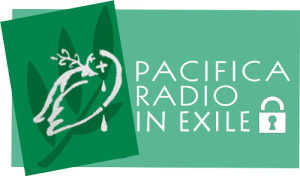Originally posted April 6, 2015
Berkeley–Pacifica’s much-delayed FY 2013 financial audit, after 11 months in the making, $80,000 spent, and close to 300 hours of auditing services, has been exposed as faulty with double-accrued expenses. The entry of the same bills twice was caused by the tumult instigated by the 2014 rogue board which has been utterly resistant to competent financial staffing and has not even seen a list of how much money Pacifica owes. The late audited financial statements, delivered 9 months after the 6-30-2014 State of California deadline, don’t hold up under scrutiny. Simple questions like the Audit Committee’s request for a list of accued legal expenses, revealed six-figure disrepancies with the general ledger and failures to reduce accounts payable after paying bills, a pretty basic bookkeeping requirement.
The board of directors has sniffed at documentation the audit is inaccurate, clinging to desperate protestations of “at least its done” and expressing disinterest in whether the figures are accurate. This audio snippet from the Audit committee on 3-10 illustrates the majority faction’s attitude (the speaker is William Heerwagon, a long time Justice and Unity member from NY and staunch ally of the majority faction). He admits he is approving something he doesn’t understand and refers to requests for supporting documentation as “details, details”.
After finding and reporting a $75,000 double-accrual of a legal expense inserted during the FY 2013 audit, former Treasurer Tracy Rosenberg commented” “If I was able to identify that in just two hours of looking at the general ledger, it is astonishing CFO Salvador after nine months and auditor Armanino after billing for 300 hours could not do the same”.
Pacifica has not signed a letter of engagement with an auditing firm for the fiscal year 2014, which ended over six months ago and will not meet the Corporation for Public Broadcasting April 17th deadline, forfeiting another million dollars in public media funding. It also appears unlikely Pacifica will meet the 6-30-2014 deadline for state filing of the 2014 audit, placing their nonprofit status in jeopardy with serial violations of the Nonprofit Integrity Act. Pacifica is currently under investigation by the CA Attorney General Charitable Trusts Division.
The loss of Pacifica’s CPB-eligibility, in addition to the forfeiture of CSG and NPPAG annual grant funding, would also remove the Pacifica stations from the Soundexchange group agreement for online streaming costs for copyrighted music. The Pacifica stations, once booted from CPB, can only be covered via membership in the National Federation of Community Broadcasters (NFCB) trade association. But financial statements delivered to the National Finance Committee by CFO Raul Salvador indicate only two of the five Pacifica stations have made membership dues payments to NFCB. Neither KPFK, WBAI or WPFW seems to have paid NFCB membership dues, which may leave them liable for direct copyright payments to Sound Exchange for every streamed broadcast.

Pacifica’s programming is created in one of two ways. Some hosts/producers are volunteers who receive broadcast time in response to uncompensated labor. Others are paid staffers who receive union-level salaries for their hosting/production work and whose work product belongs to their employer. KPFK’s Uprising, which is also simulcast on the Berkeley station, KPFA, belongs to the latter category, with two full-time host/producer salaries paid by Pacifica station KPFK. The program recently received video broadcast rights on Free Speech TV, and Uprising host Sonali Kolhatkar crowd-sourced funds on the Indiegogo platform to purchase video equipment and pay production staff to shoot the video version of the radio show for FSTV.
Unfortunately, as detailed in previous editions of Pacifica In Exile, 50% of the funds raised on Indiegogo were removed from the restricted account in September and October of 2014, used to pay KPFK’s health benefits and telephone bills, and not replaced. Kolhatkar has responded to that theft with her own initiative, privately selling Pacifica’s show via a Youtube channel for a monthly subscription fee, while continuing to draw a full-time salary from KPFK for hosting/producing the program.
Pacifica finally has a new executive director, after a year with none. The choice is former KUHF CEO John Proffitt, an NPR veteran who led the University of Houston’s radio station for 26 years. Proffitt was not the first choice of the board’s majority faction who did not support his candidacy and instead offered the job to labor writer Bill Fletcher Jr, who declined. When the board majority was told to offer the position to the 2nd most highly ranked candidate, Proffiitt in January, they balked and refused, instead insisting that the entire board redo its selection process, in hopes of securing majority support for another candidate. After a two month delay, they proved unable to do that and have reluctantly gone ahead and offered the job to Proffitt, who accepted.
While it remains to be seen if the NPR veteran can adjust to Pacifica’s quite-different culture and overcome the lack of support from the board majority, the end of the hobbyist ED is a good development for Pacifica. Hopefully the board will let the new executive director make some much-needed changes in the troubled organization. For those interested, here is a brief audio clip of Proffitt speaking at a Houston fundraising event.
In Los Angeles, KPFK, the network’s fundraising leader for the last few years, has dropped into an impromptu week-long fund drive this week, barely 6 weeks after the last lengthy fund drive concluded and less than 4 weeks after the next lengthy fund drive is supposed to begin.
Pacifica in Exile readers may write to the board at pnb@pacifica.org.
To subscribe to this newsletter, visit www.unitedforcommunityradio.
###
Started in 1946 by conscientious objector Lew Hill, Pacifica’s storied history includes impounded program tapes for a 1954 on-air discussion of marijuana, broadcasting the Seymour Hersh revelations of the My Lai massacre, bombings by the Ku Klux Klan, going to jail rather than turning over the Patty Hearst tapes to the FBI, and Supreme Court cases including the 1984 decision that noncommercial broadcasters have the constitutional right to editorialize, and the Seven Dirty Words ruling following George Carlin’s incendiary performances on WBAI. Pacifica Foundation Radio operates noncommercial radio stations in New York, Washington, Houston, Los Angeles, and the San Francisco Bay Area, and syndicates content to over 180 affiliates. It invented listener-supported radio.


